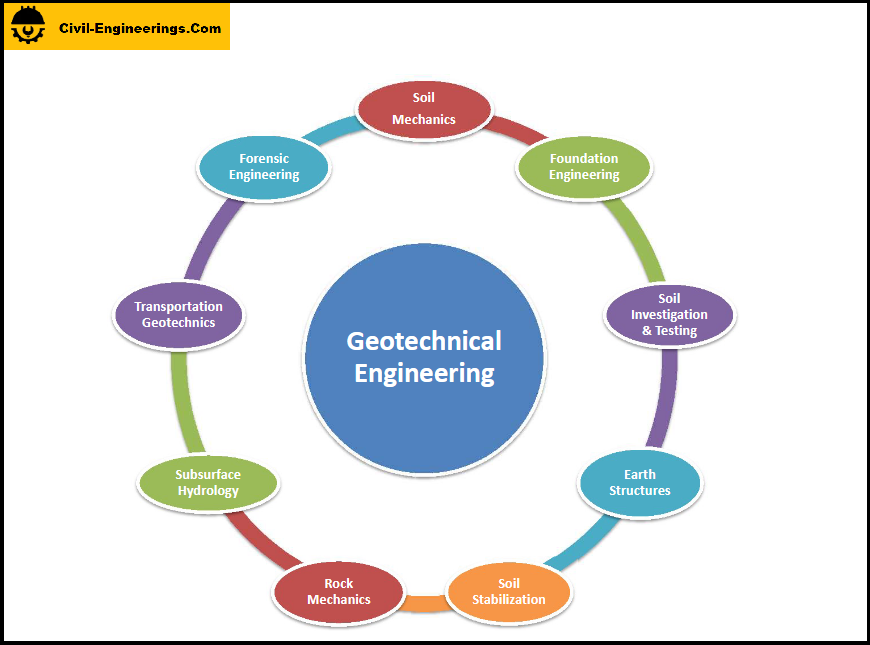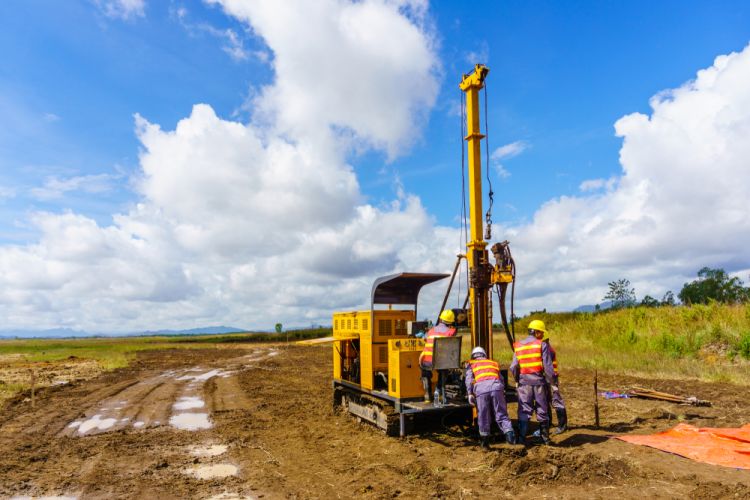The 6-Minute Rule for Specialized Geotechnical Engineering Solutions
The 6-Minute Rule for Specialized Geotechnical Engineering Solutions
Blog Article
How Specialized Geotechnical Engineering Solutions can Save You Time, Stress, and Money.
Table of ContentsRumored Buzz on Specialized Geotechnical Engineering SolutionsExamine This Report on Specialized Geotechnical Engineering SolutionsGet This Report about Specialized Geotechnical Engineering Solutions7 Simple Techniques For Specialized Geotechnical Engineering Solutions
They carry out site investigations, collect samples, do laboratory tests, and evaluate data to assess the viability of the ground for construction tasks. Based on their findings, geotechnical designers give suggestions for foundation design, slope stability, preserving structures, and mitigation of geotechnical threats. They team up with various other professionals, such as engineers, architectural designers, and construction groups, to ensure that geotechnical considerations are incorporated right into the overall project layout and execution.
Structure Style: Geotechnical engineers play a critical duty in making structures that can safely support the intended structure. They examine the dirt problems and lots requirements to figure out the ideal foundation kind, such as superficial structures (e.g., footings), deep foundations (e.g., stacks), or specialized methods like dirt improvement. They take into consideration factors such as negotiation restrictions, bearing capacity, and soil-structure interaction to create ideal structure designs.
Excitement About Specialized Geotechnical Engineering Solutions
Below are some kinds of geotechnical engineers: Structure Engineer: Foundation engineers concentrate on developing and analyzing foundations for frameworks - Specialized Geotechnical Engineering Solutions. They analyze the soil conditions, load needs, and website qualities to establish one of the most proper foundation type and style, such as superficial structures, deep structures, or specialized strategies like pile structures
They perform area screening, gather samples, and analyze the gathered information to characterize the soil properties, geologic developments, and groundwater conditions at a site. Geotechnical Instrumentation Engineer: Geotechnical instrumentation engineers focus on tracking and gauging the habits of dirt, rock, and structures. They install and maintain instrumentation systems that monitor elements such as dirt negotiation, groundwater levels, incline motions, and structural variations to analyze performance and provide early warnings of potential concerns.
In the office atmosphere, geotechnical engineers utilize specialized software tools to execute computations, develop layouts, and examine information. Specialized Geotechnical Engineering Solutions. They prepare records, review job specifications, interact with customers and employee, and coordinate project activities. The workplace setting provides a conducive atmosphere for research study, analysis, and cooperation with various other experts involved in the project
They regularly visit job sites to carry out website examinations, evaluate geotechnical conditions, and collect data for evaluation. These visits include traveling to different locations, sometimes in remote or difficult Continue terrains. Geotechnical engineers may execute dirt tasting, conduct examinations, and monitor construction tasks to guarantee that the geotechnical elements of the job are being carried out properly.
The 6-Minute Rule for Specialized Geotechnical Engineering Solutions
Geotechnical engineers likewise work in specialized geotechnical laboratories. Geotechnical research laboratory engineers function extensively in these settings, dealing with screening devices, running instruments, and taping information.
Maintaining Wall surfaces: Producing wall surfaces that hold back dirt to stop landslides and provide stability on sloped surfaces. Embankments and Earthworks: Designing embankments for roads, trains, and dams to ensure they stay steady under tension. The mining market counts heavily on geotechnical design to guarantee the safety and security and durability of its procedures.
With this in mind, we have actually developed our program to prepare trainees for success. Geotechnical engineers are involved in all phases of the layout of frameworks, from idea to building. Their work is necessary in the design and planning process as they assess the honesty of soil, clay, silt, sand, and rock, prior to building starting.
Everything about Specialized Geotechnical Engineering Solutions
This is followed by a ground examination based upon the findings of the desk research study and involves trial pitting and tasting to discover any prospective concerns. Geotechnical designers work within multidisciplinary groups, supported by intermediate and younger designers as well as by CAD professionals. As an elderly geotechnical designer on a hydro plant project, tasks might consist of joining technical evaluations (e.g., peer evaluations), tailings clog inspections, dam security reviews, and other research studies connected to the layout and building and construction of mine waste centers.
While some specialists specialise only in geotechnics, others may work under titles like engineering geologist or ground engineer within similar capabilities. As a geotechnical designer, you'll need to: develop and preserve partnerships with customers and various other specialists involved in the website, throughout each projectmaintain safety standards on site be mindful of cost effects when you make recommendationsstudy geological maps and aerial photos from a variety of sources and from different time periodsexamine building and construction plans to see how possible they are based on your understanding of the siteinvestigate risks or geological threats for the page sitesearch for environmentally delicate attributes, such as land fill beginning to create valid and expository ground modelsplan area investigationsdrill and analyse samples of bedrock, dirt, groundwater and extra materials monitor other specialists on sitesolve technical concerns as they develop, right here such as unforeseen structures at drill sitesmonitor conditions during and after construction to ensure frameworks are steady in the short and lengthy termadd information gathered on site to your first researchcreate geotechnical estimations, drawings, and two or three-dimensional computer models analyzing the datamake referrals concerning the suggested use of the site.
There are great deals of possibilities to satisfy new individuals, as you'll deal with a variety of professionals at every site. The work can be demanding as you may be in charge of the safety and security of others while on website. There is also a high degree of monetary obligation, as the recommendations you make can have significant expense effects.

Report this page